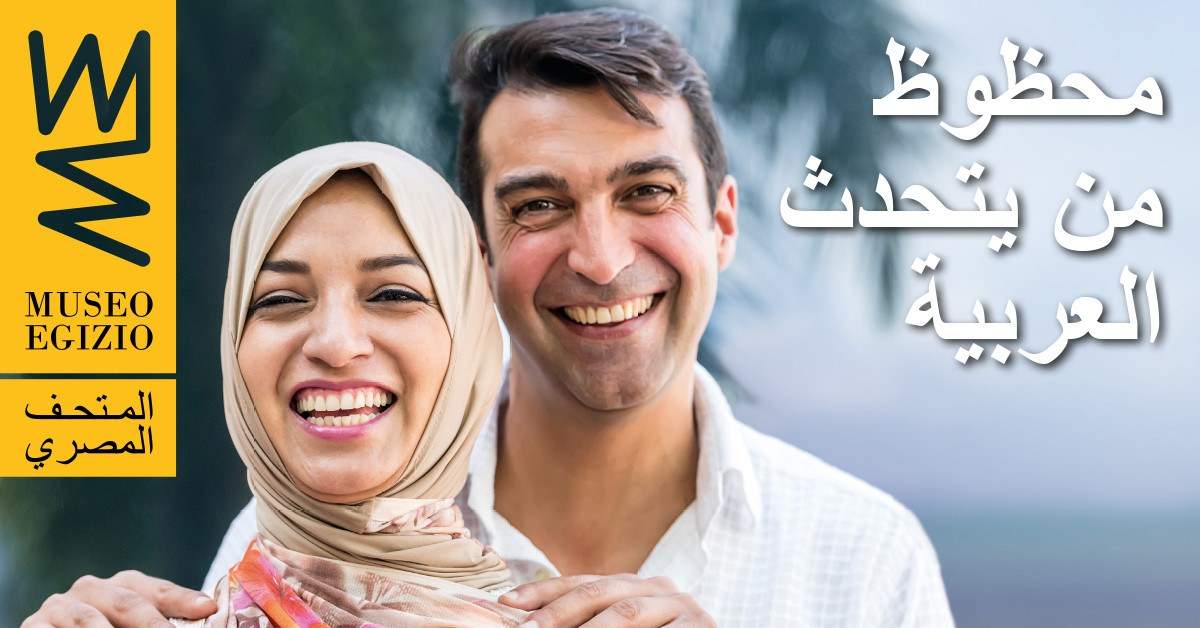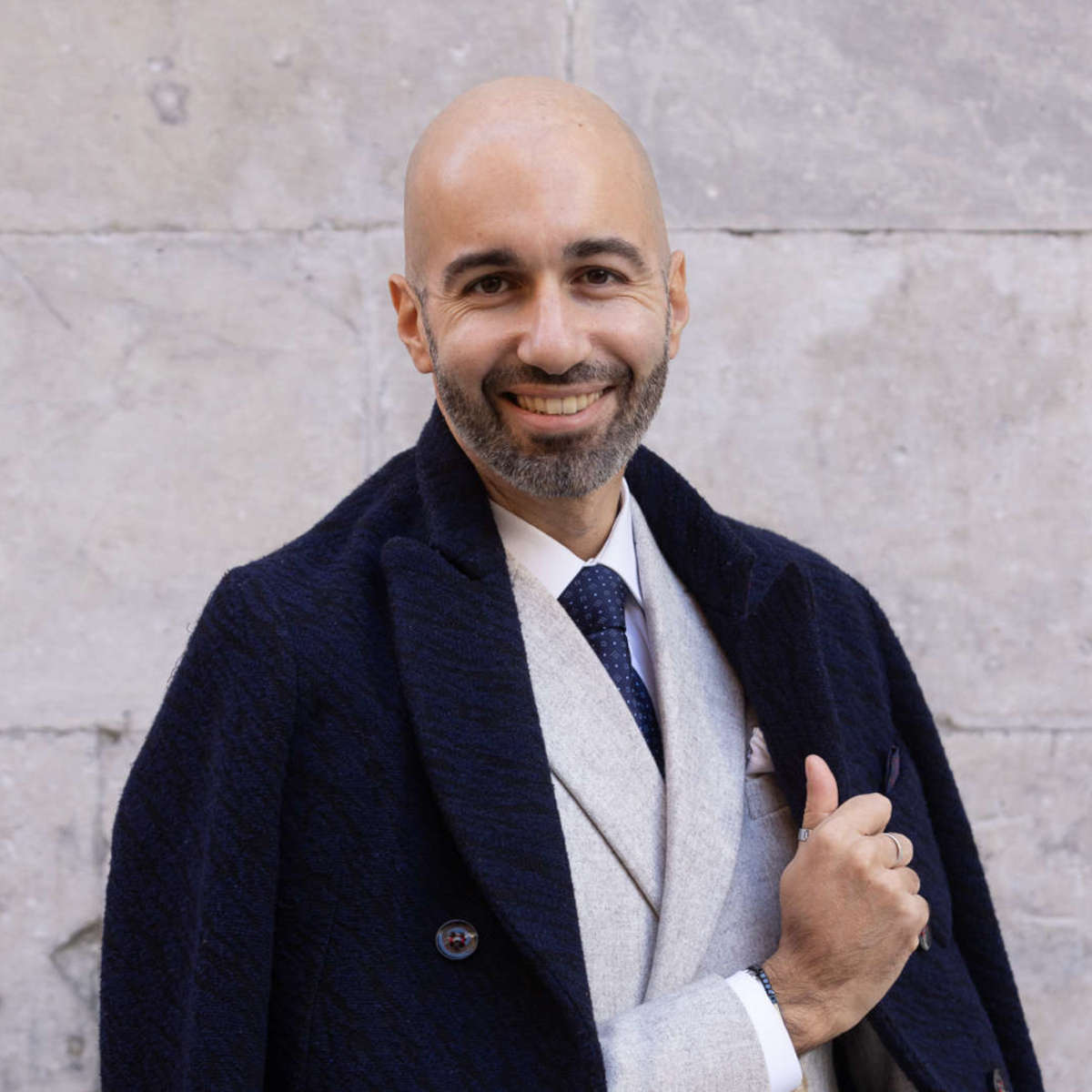The writer has long believed that the crude mantra of “Italians first” is one of the main factors polluting current political debate. This demagogic and rambling litany, however, takes on decidedly more obnoxious contours when applied to culture, a sphere perhaps more than any other far removed from any attempt to raise borders or barriers. So it happens that the Egyptian Museum in Turin is targeted by the boorish grunts of those who frown upon one of the latest initiatives of the Piedmontese institution, which in early December 2017 launched, for the second year, the Lucky He Who Speaks Arabic campaign: an initiative that will run until March 31 and involves the sale of two tickets for the price of one to Arabic-speaking citizens. But it’s not just a discount: as part of the campaign, there are itineraries, family tours, video guides, audio guides in Arabic, and a cultural mediation project aimed at “telling the museum collections through the female voices of the North African community,” as stated on the Egyptian Museum’s website.
 |
| The Lucky Who Speaks Arabic campaign banner |
It is astonishing, meanwhile, that the ignorance of the “Italians first” racists is returning to an issue already attacked twelve months ago: evidently their leaders, in view of the upcoming elections, have found it advantageous to repeat last year’s posts in more or less the same words, feeding the news to their respective torments of nationalists from Facebook barking, otherwise unaccustomed to setting foot in museums or even simply browsing their websites, an operation within the reach of anyone. If the indignant man with the easy exclamation point had put down his keyboard for a moment, posed the problem of getting out of the perennial campaigning logic that characterizes the pages of his inconclusive political idols, and spent a handful of minutes to go to the Egyptian Museum’s website, he would have spared himself comments in the style of “all privileges to these tourists maintained by the citizens,” “we pay and they have all the rights, shame on them,” “enough of this crap! Italians first. This is not racism, but common sense. As it happens in other countries that privilege their own inhabitants first,” “in Turin, unfortunately, Italians have become a burden,” “we should eliminate all the facilities and discounts that non-EU citizens enjoy and that are denied to Italians” (all true comments found with a simple search on social media). And certain imbeciles would have avoided launching ramshackle exhortations for Italians to boycott the Egyptian Museum.
Thus, if the average indignant person had browsed through the pages of the Egyptian Museum, he or she would have discovered that the institution offers a wide range of discounts even to those who do not speak Arabic (since, of course, the discomfort of most concerns only the economic advantage granted to those who are proficient in the most widespread of Semitic idioms): there are permanent discounts reserved for children from 6 to 14 years old (€1), for children from 15 to 18 (€11), free admission for children under 5, for the disabled, and for Torino Piemonte Museums and Torino+Piemonte Card season ticket holders. And throughout the year, the Museum also guarantees promotions to other categories of users: the much-reviled “two-for-one ticket” formula reserved for citizens from Arab countries was granted to couples for Valentine’s Day, while free admission was extended to a parent with child for Father’s Day and Mother’s Day, and still reductions for those who, on the day of the “Match of the Heart,” had shown up at the museum with a stadium ticket, reduced price to only 5 euros for Friday evenings in July and August, the same price at a single rate for Researchers’ Europe Night, and, for the 2016 Christmas holidays, a free ticket for a second visit. These are simple and widespread actions of audience development (to use the same term used by the Museum, which has come to the point of having to justify its choices in the face of the waffling resentment of patriotic howlers), aimed at broadening the audience and tightening ties between the museum and the territory: and the one targeted in these hours is entirely understandable in a province where there are an estimated thirty thousand Arabic-speaking citizens.
A further consideration must then be made. The “Italian first” troublemakers (except when it comes to grammar and spelling, judging by the way they write) should be happy about such an initiative, given their habit of lavishing in rants against “immigrants who do not integrate into our culture” (to quote another effective slogan of theirs): a campaign with a blatant inclusiveness, aimed at fostering integration by spurring Arabic-speaking citizens to share a heritage that it would be ridiculous to deem Italian (indeed: would we want to use a modicum of courtesy to the countries from which much of the Egyptian Museum’s collection comes by showing them a little gratitude?) and, as the Egyptian Museum points out, to “increasingly be part of the community with which they have chosen to live and share the future.”
Of course, it is difficult to talk about inclusion to a livid troglodyte who has probably never set foot in a museum but who proposes to other decerebrates like him to stop visiting the Egyptian Museum (which would come out intact even from any substantial boycott campaign: impossible to lose visitors you already didn’t have). And it is also hard to convince him that not only are such initiatives smart and good for the museum and culture, but their extension to other museums would also be desirable. One could limit oneself to pointing out to him that such vain and sterile polemics already start with the timer preset (it is necessary to reiterate that the Facebook posts one reads in these hours are roughly the same ones we used to read on the occasion of the first edition of Fortunato who speaks Arabic) and have the sole, miserable purpose of snatching an instinctive vote from him in the voting booth. But even such awareness requires the firing of a couple of synapses: and perhaps it is already too much for those who bark against a beautiful initiative just because they read the words “museum,” “Arabic” and “free” in the same sentence. Or because spoon-fed by some vote-hunting tribune.

The author of this article: Federico Giannini
Nato a Massa nel 1986, si è laureato nel 2010 in Informatica Umanistica all’Università di Pisa. Nel 2009 ha iniziato a lavorare nel settore della comunicazione su web, con particolare riferimento alla comunicazione per i beni culturali. Nel 2017 ha fondato con Ilaria Baratta la rivista Finestre sull’Arte. Dalla fondazione è direttore responsabile della rivista. Nel 2025 ha scritto il libro Vero, Falso, Fake. Credenze, errori e falsità nel mondo dell'arte (Giunti editore). Collabora e ha collaborato con diverse riviste, tra cui Art e Dossier e Left, e per la televisione è stato autore del documentario Le mani dell’arte (Rai 5) ed è stato tra i presentatori del programma Dorian – L’arte non invecchia (Rai 5). Al suo attivo anche docenze in materia di giornalismo culturale all'Università di Genova e all'Ordine dei Giornalisti, inoltre partecipa regolarmente come relatore e moderatore su temi di arte e cultura a numerosi convegni (tra gli altri: Lu.Bec. Lucca Beni Culturali, Ro.Me Exhibition, Con-Vivere Festival, TTG Travel Experience).
Warning: the translation into English of the original Italian article was created using automatic tools. We undertake to review all articles, but we do not guarantee the total absence of inaccuracies in the translation due to the program. You can find the original by clicking on the ITA button. If you find any mistake,please contact us.